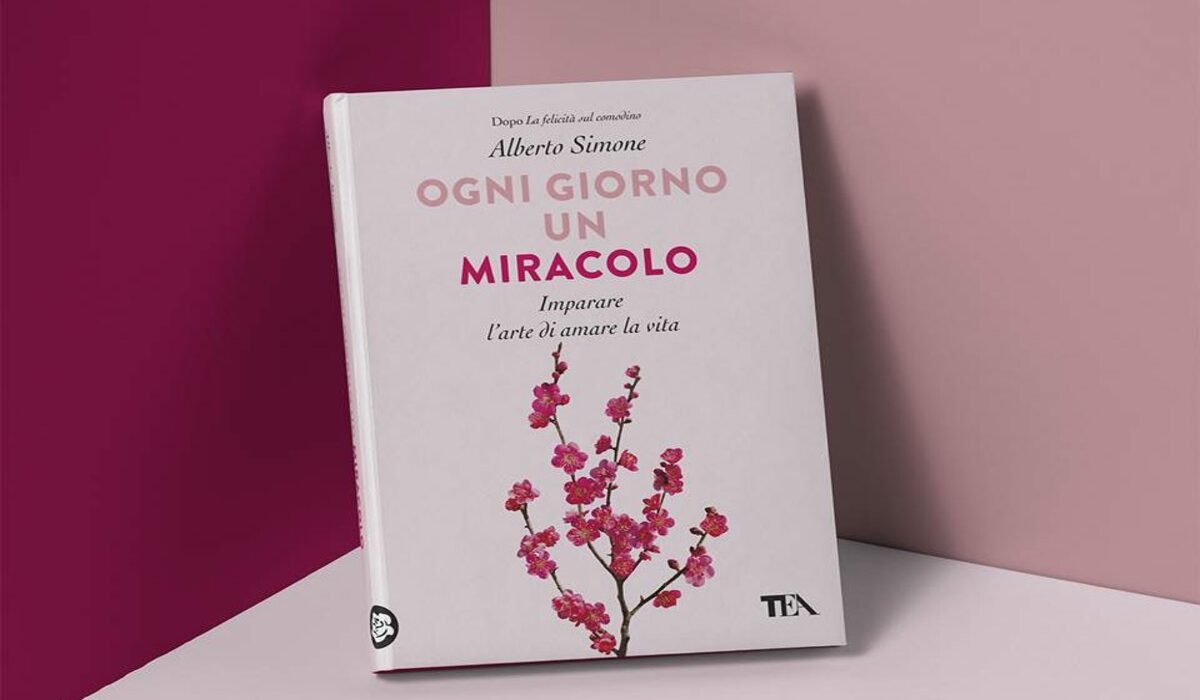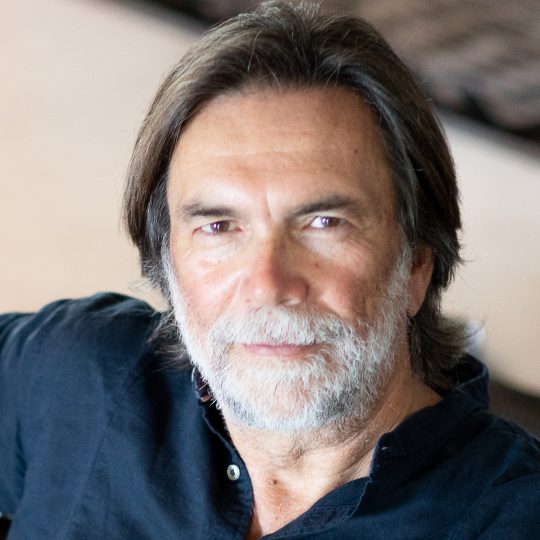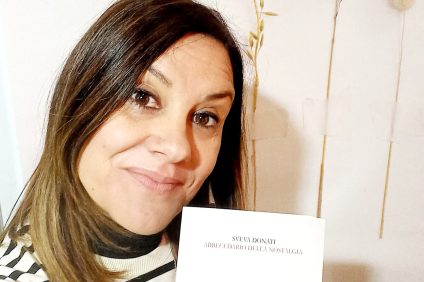After La happiness on bedside table the director and psychotherapist Alberto Simone returns to the bookstore with Every day a miracle - Learn the art of loving life, published Tea. Simone confirms himself as a connoisseur of the human soul, he tackles issues that concern everyone's life, themes that should not be ignored or underestimated.

A miracle every day emanates positivity, invites us to evolve, to change ourselves to change the world. A reading to treasure to (re) fall in love with life. The chapters flow easily, each one faces a different theme and is colored with anecdotes, reflections, personal testimonies.
It will not be difficult for the reader to identify with the sensations described because they are threads of a plot that page after page we discover to be there love story (more or less troubled) that each of us has towards life: a miracle of which we are protagonists and of which Simone speaks to us in this exclusive interview.

In the historical period we are living, how important is the inner dialogue with ourselves?
We know a lot about the world around us, but our inner world is the most unexplored of landscapes. Yet it is precisely in the inner dimension that we inhabit. And it is there that the vast majority of our life takes place, even if we are immersed in a physical dimension and in a world made up of concrete things. Since we wake up in the morning we live in the company of our thoughts and above all of our emotions, intangible and intangible realities, invisible to the senses, but very powerful in determining our perception of the outside world, orienting our decisions and behaviors, determining our quality of our relationships and even our state of health. In a world dominated by materialism, getting to know how we function and taking care of our interiority will be the next challenge for mankind.
Is life a miracle or is the miracle itself life?
Everything that we are and that surrounds us is a miracle. The etymology of the term comes from the Latin “mirabilis”, a wonderful thing. And wonder is our spontaneous reaction to what we see but don't understand. For how many things we may know, those we do not know or for which we do not have an explanation are still infinite. Faced with the mystery of such a regulated and ordered universe, we have no other possible reaction than to feel wonder and amazement, together with the gratitude of being part of it. When we consider all this as an acquired and foregone fact we lose the possibility of appreciating its power and being able to enjoy it.
How to free ourselves from the trend of to judge and retrieve the empathic ability?
Judging creates separation. There is no benefit from it, if not the illusion of a presumed condition of superiority. An American Indian proverb says that before you judge someone you must have walked for quite some time in their shoes. We have better ways to understand ourselves.
In your book, you sadly tell us how much of the world's population suffers from depression. How much does the use of new technologies, especially social networks, determine the growth of this phenomenon?
Technological progress arises from the need to have tools available to make life easier. It always depends on the use we make of it. It often becomes an abuse when it alienates us from real life and when we replace authentic relationships with virtual relationships. No Social Network can ever replace a hug and least of all a kiss. But depression has more complex causes and affects us when we are no longer able to give meaning and direction to our life. It happens after a major loss, of a person or an occupation or even just a professional or social position that was the foundation of our identity. Then there is a hormonal response that is automatically engaged and corresponding to the repeated production of certain thoughts and evaluations about ourselves, about others, about reality, which makes us feel even worse. Depressed people have an insufficient production of serotonin, dopamine, oxytocin and other endorphins, all hormones which, conversely, are activated in a condition of safety, sense of belonging and sharing.
What does the dimension of the here and now what does he talk about in his book? How can it be made concrete?
As we understand that past and future can only exist in our mind, Orientals liken the mind to a monkey that constantly leaps between two branches, the past and the future. Stopping the monkey is equivalent to stopping the mind in its projective activities, often useless and stressful, in order to appreciate instead what we are actually experiencing.
How much it helped her the passion for oriental philosophies in the writing of this book?
Eastern philosophies, like all knowledge, represent a great wealth available to all humanity. They are perhaps the most ancient and organized knowledge in an attempt to know and explain reality. But they are also rich in practical knowledge and teaching. For me they are a constant source of inspiration. In my books, however, I draw on all forms of knowledge, from psychology, to quantum physics, from biology to religions. We have at our disposal an immense "book" that can help us first of all to get to know each other better, but above all to face negative experiences and adversities that we are called to go through in life. As much as we don't like them, certain experiences are inevitable. All of us have to go through different forms of suffering, illness, separation or bereavement at one time or another. A lot of knowledge helps us to do it in the best way, even managing to grow as human beings and find ourselves even better.
A last question. What must never be missing in an individual's existential baggage in your opinion?
The introspective ability is very important to live with awareness the many experiences that the journey of life offers us. But certainly everything can be supported by the ability to love and love. It is an art that is often not innate and is sometimes distorted by the very need we have to be loved, supported and accepted. But if we are not the first to start loving each other and respecting our nature, no genuine love will ever reach us.





